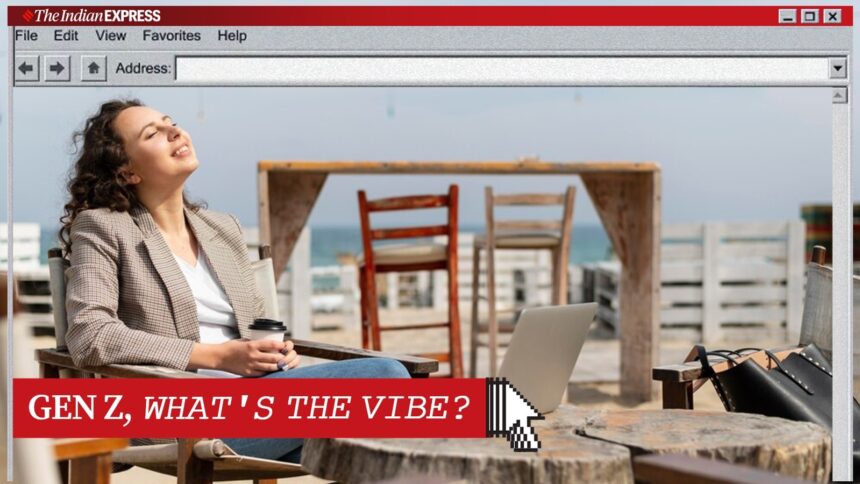Long sabbaticals are becoming passé. Today’s Gen Z – and some millennials – are warming up to the idea of micro-retirement: short, intentional career breaks to focus on personal goals and desires, mental well-being, or simply to catch a breath. Unlike earlier generations, who postponed such pursuits to post-retirement years, younger professionals are choosing to hit pause — now.
According to Forbes, micro-retirement is “reshaping workplace norms.” So, what motivates and millennials (1981–1996) to this trend?
Sejal Ved, a 2021 graduate, took a three-and-a-half-month break after 20 months in the corporate sector — to travel. “I did a 10-day meditation course at a Buddhist centre in Dharamkot, McLeod Ganj, visited some places I’d been to before, met friends and then explored the Northeast, including Meghalaya, which had long been on my list,” said Ved, 28. She returned to work for eight months, but took another seven-month break during which she spent three weeks in Kashmir and explored PhD options. She is currently back in a corporate role and has been working there for 10 months.
Rishabh Chauhan, 27, a -based public relations professional, is planning a break – after being in the job for five years – to work with a Non-Governmental Organisation (NGO) involved in cleanliness drives in the Himalayas. “I was always looking for opportunities to give back to the planet,” he said, calling it an “experiment” in his life.
First popularised in 2007 by Timothy Ferriss in his book The 4-Hour Workweek, the term has recently resurfaced on social media, with off to travel, pursue hobbies, or simply avoid work stress. While the term may sound like a Gen-Z innovation, millennials are embracing it too, as they increasingly prioritise work-life balance.
Kamal Tanwani, 35, a data analyst from , took a six-month break after a “crazy” three-year project that left him burnt out. “I’d usually take breaks quarterly, but this project was all-consuming. I needed a longer pause. It’s been amazing so far. I’ve travelled to Mauritius, Malaysia, Japan, and the Philippines, learned to swim, and went scuba diving with whale sharks. While I miss having a routine, this break has shown me what retirement could feel like,” Tanwani told .
Shraddha Subramanian, certified business coach and founder of Sparkling Soul, said people are becoming more aware of their physical and mental well-being, and micro-retirements are a natural outcome of that shift.
According to Subramanian, the benefits include the following:
Focus on well-being: The time off helps prevent burnout and brings clarity. And the intent ensures the break is meaningful.
Skill development:Breaks offer time, space, and freedom to learn new skills, revisit old interests, or take up new hobbies.
Fulfilment and contribution: Micro retirement can also enable contributing to social projects and earning fulfilment.
Self-discovery: “Always being in action is not a sign of healthy, happy living. Taking conscious breaks and trying new things can help you identify your true calling or purpose,” said Subramanian.
According to Shraddha Reghe, vice president, People Practices, Seclore, the shift is towards a more intentional, balanced, and impact‑oriented way of working. “Gen Z advocates for flexible schedules, hybrid models, and structured support for mental health. It isn’t about carving out lengthy breaks, but they are focused on making a difference and have a purpose-driven approach,” said Reghe.
Reghe said that organisations that respond with agile career frameworks, regular “innovation sprints,” and transparent feedback loops find that these professionals thrive and stay longer. “Benefits like unlimited paid leaves offer a flexible way to rejuvenate without fully stepping away. In innovation‑led workplaces, these breaks are seen as tools for creativity, not as exit ramps,” said Reghe.
Aryan Surana, 26, a journalist from Madhya Pradesh’s Barwaha, said that he “won’t opt for micro-retirement because in a fast-moving world, a sabbatical of a year or two can peg you back so significantly that it might become very hard to catch up later on. If you go cold turkey, your skills corrode, so many opportunities pass by, and others climb up the ladder in your absence.”
Recently, Aryan found himself in a “life scenario” –– his home was being renovated, work wasn’t fulfilling, and he wasn’t in a good mental space. “Instead of quitting, I scaled back my goals temporarily but stayed in the game. When things stabilised, I was ready to bounce back,” he said.
Surana believes breaks make more sense after you’ve established yourself professionally. “When you’re still finding your place in the industry, taking time off can hurt more than help.”
Subramanian listed a few drawbacks to consider:
Lack of connection and continuity: Frequent breaks can cause disconnection from work and reduce consistency. This may lead to a feeling of being out of place.
Career stagnation: For entrepreneurs or those in competitive sectors, regular breaks may slow progress.
Financial stability at stake: Taking frequent breaks also requires you to fund yourselves. If finances are not planned well, it may cause more challenges and burnout in the later years of life.
Micro-retirement isn’t for everyone, and that is okay. It’s a personal decision that depends on one’s goals, financial situation, and stage in life. For some, it’s a path to clarity and growth. For others, it’s a risk best avoided.








